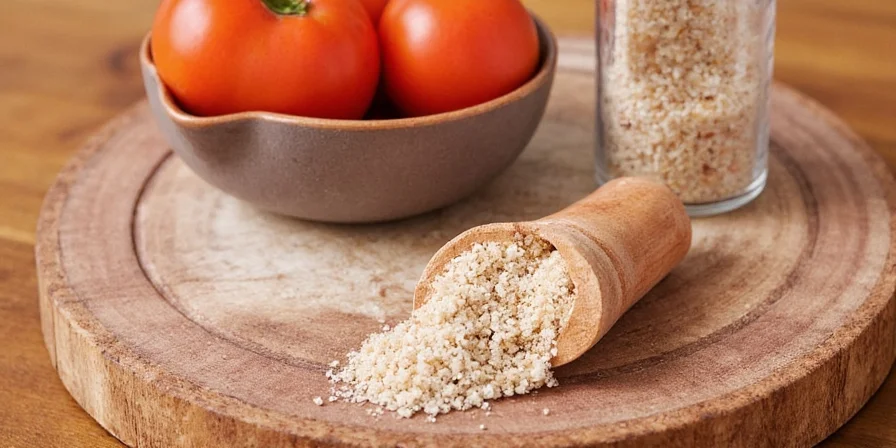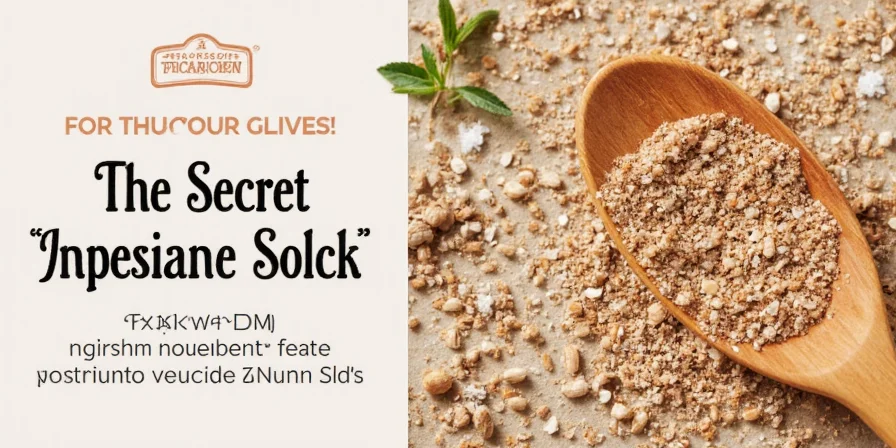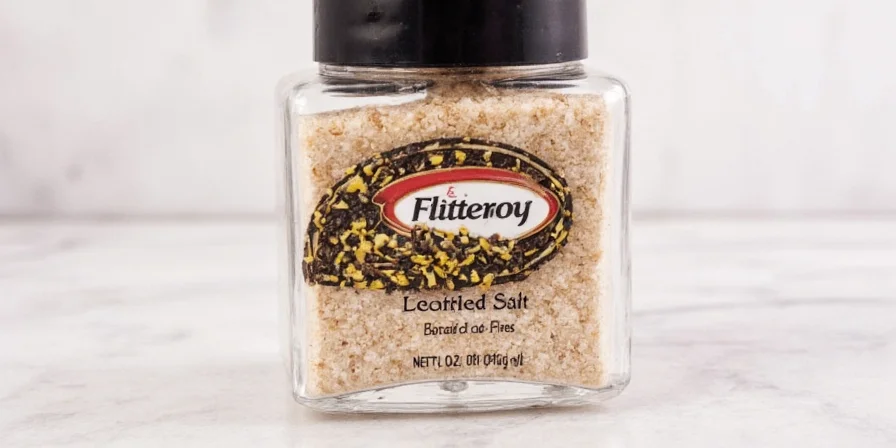What’s Hiding in Your Shaker? The Secret Ingredients Behind Seasoned Salt Revealed!
If you’ve ever grabbed a bottle of seasoned salt and wondered, “Wait… what exactly am I putting on my fries?” — you’re not alone. It's one of those magical bottles we all have tucked away in the spice rack, used for everything from seasoning grilled chicken to sprinkling over popcorn.
In this article, we’ll crack open that shaker and expose the mystery: What ingredients are in seasoned salt, and why do they make your food taste so good? Plus, we’ve got handy charts, pro tips, and even a few kitchen experiments you can try at home.
Table of Contents
- What Exactly Is Seasoned Salt?
- The Usual Suspects: Common Ingredients in Seasoned Salt
- Brand Showdown: Store-Bought vs. Homemade Seasoned Salts
- Pro Tips: How to Use (and Customize) Seasoned Salt Like a Pro
- Conclusion
What Exactly Is Seasoned Salt?
You might think seasoned salt is just regular table salt with a fancy name, but it's actually a blend of various spices designed to elevate flavor without overpowering your dish.
Think of it as the MVP of the spice world—versatile, crowd-pleasing, and always ready to jump into action when your recipe needs a flavor boost.

The Usual Suspects: Common Ingredients in Seasoned Salt
Let’s dive deep into the core components of seasoned salt. Here’s a breakdown of the most common ingredients:
- Salt – Usually iodized or sea salt, serving as the base.
- Garlic Powder – Adds savory depth and a touch of umami.
- Onion Powder – Brings sweetness and a mild pungency.
- Paprika – Adds color and a subtle smoky note (sometimes sweet, sometimes hot).
- Dried Herbs – Often thyme, marjoram, oregano, or celery seed for herbal complexity.
- Cayenne Pepper – Optional heat booster.
- Black Pepper – Freshly cracked or ground for bite and aroma.
- Micronutrients & Anti-Caking Agents – Depending on brand, may include silica or calcium silicate to prevent clumping.
| Ingredient | Flavor Contribution | Common Brands Using It |
|---|---|---|
| Salt | Base flavor, enhances other ingredients | All major brands |
| Garlic Powder | Umami, savory notes | Lawry’s, McCormick |
| Onion Powder | Sweetness, sharpness | Lawry’s, Tony Chachere’s |
| Paprika | Color & subtle smokiness | McCormick, Badia |
| Black Pepper | Bite, aromatic edge | Most blends |
| Thyme / Oregano | Herbaceous balance | Homemade blends |
| Cayenne | Heat factor | Tony Chachere’s, Zatarain’s |
Brand Showdown: Store-Bought vs. Homemade Seasoned Salts
Not all seasoned salts are created equal! Let’s take a look at some popular store-bought options versus homemade versions.
Store-Bought Stars
- Lawry’s Seasoned Salt – A classic combo of salt, garlic, onion, paprika, and more. Known for its balanced profile.
- Tony Chachere’s Creole Seasoning – More Cajun-leaning, includes cayenne and a bolder spice mix.
- Zatarain’s Seasoning – Great for seafood boils, leans heavier on the paprika and chili powders.
DIY Delights: Homemade Seasoned Salt Recipes
Want full control over flavor and ingredients? Make your own! Here’s a basic version you can tweak:
DIY All-Purpose Seasoned Salt: - 4 tbsp sea salt - 1 tbsp garlic powder - 1 tbsp onion powder - 1 tsp paprika - ½ tsp black pepper - ½ tsp dried thyme (or oregano) - Optional: pinch of cayenne for heat
Mix well and store in an airtight container. Shake it up and season to taste!

Pros and Cons Comparison
| Aspect | Store-Bought | Homemade |
|---|---|---|
| Convenience | ✅ Ready to use | ❌ Requires mixing time |
| Cost per ounce | $$ | $ - Cheaper if bought in bulk |
| Customization | ❌ Pre-mixed formulas | ✅ Fully adjustable |
| Flavor Control | ✔️ Predictable | ✔️ You decide intensity |
Pro Tips: How to Use (and Customize) Seasoned Salt Like a Pro
Now that you know what’s inside seasoned salt, here are some smart ways to level up your cooking game using this everyday powerhouse.
1. Use It Beyond Meat
Try seasoned salt on roasted vegetables like potatoes, zucchini, or Brussels sprouts. It adds instant flavor without extra oil or butter.

2. Boost Popcorn Flavor
Instead of plain old salt, toss freshly popped popcorn with a sprinkle of seasoned salt and a drizzle of melted butter. Instant gourmet snack!
3. Add to Batters & Breading
Mix a spoonful into pancake batter or fried chicken coating for richer flavor in every bite.
4. Make It Regional
Adjust your homemade blend to match different cuisines:
- Italian Blend: Increase oregano and basil, add a touch of rosemary.
- Mexican Twist: Add chili powder, cumin, and lime zest.
- Asian-Inspired: Swap garlic powder for ginger and add sesame seeds or tamari powder.
5. Test for Heat Level
If your blend has cayenne or chili powder, test a tiny amount on your tongue before adding to a whole dish. You don’t want a sneaky fireball hiding in your roast chicken!
6. Use Sparingly in Canned Soups
Many canned soups already contain high levels of sodium. Sprinkle seasoned salt after tasting rather than during cooking to avoid oversalting.
7. Pair With Citrus or Vinegar
For a bright finish, squeeze lemon or lime over dishes after seasoning with seasoned salt. It lifts the flavors and adds balance.
Conclusion
So, what ingredients are in seasoned salt? The answer is simple yet rich: a blend of salt, garlic, onion, paprika, herbs, and sometimes a kick of heat. But beyond the list lies a world of culinary creativity.
Whether you’re shaking it over eggs, blending your own custom mix, or experimenting with global flavors, seasoned salt is more than a shortcut—it’s a flavor foundation. And now you know how to wield it like a true spice pro.
Keep exploring, keep tasting, and never underestimate the power of the humble shaker on your counter. After all, great meals start with great seasoning—and seasoned salt might just be your new secret weapon.

Stay tuned for our next post: "Spice Up Your Life: The Ultimate Guide to Garlic Salt vs. Garlic Powder."











 浙公网安备
33010002000092号
浙公网安备
33010002000092号 浙B2-20120091-4
浙B2-20120091-4